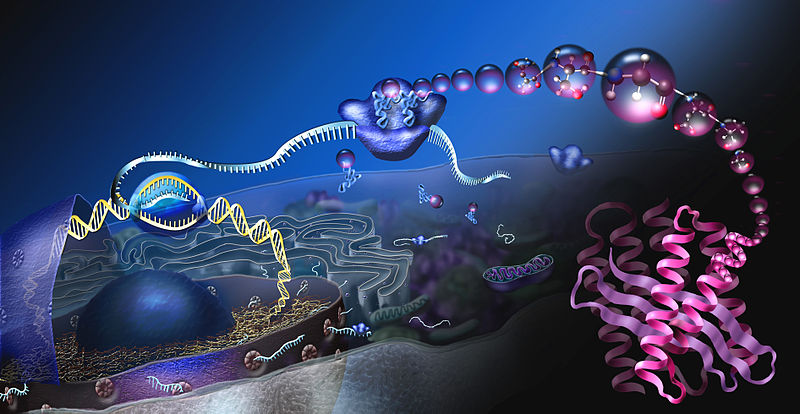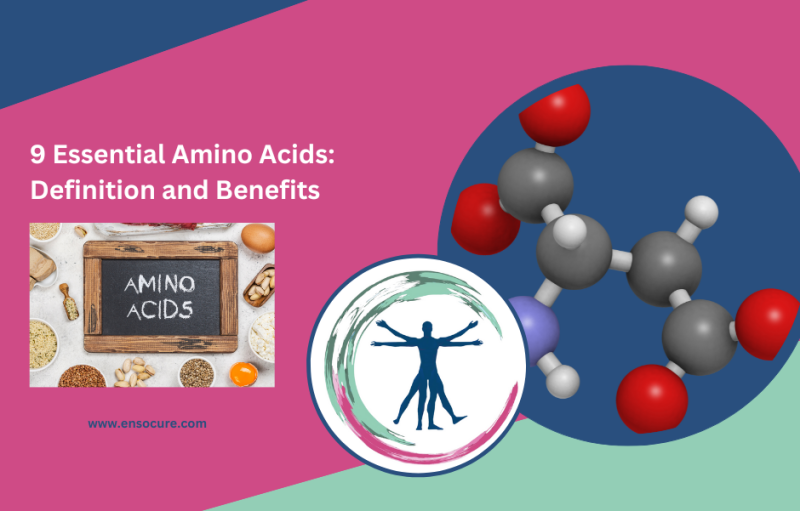When you’re hooked on working out, an athlete or you just love being fit, and go protein, protein, protein, what exactly does that mean? In today’s world of heavily marketed protein supplements, often you will hear words like Valine, Lysine or BCAA (Branch Chain Amino Acids), so what exactly are these? It is always good to know the physiology of how your body works and protein especially, what is a complete protein, and what are the nine essential amino acids that make up one? Protein is sourced from meat and vegetarian products but when is a protein a complete protein?
A protein is a complete protein when it contains nine essential amino acids that our bodies cannot produce on their own. Call it nature’s irony but, these nine proteins are extremely important to form muscle, transport nutrients, and build and repair tissue. Incomplete proteins aren’t bad either, like vegetarian foods and they too are beneficial for health, so what you do need is a healthy combination of both.
What are amino acids and why do we need them

Amino acids are organic compounds that serve as the fundamental units of proteins, also called the building blocks of life. These compounds contain carbon, hydrogen, oxygen, and nitrogen, and each amino acid is distinguished by a unique side chain. There are hundreds of amino acids but the body needs just 20 to produce all the proteins needed for life. Among these, 12 are non-essential amino acids that are synthesized by the body which means, we do not need them from food. The remaining nine amino acids including three branch chain amino acids cannot be produced in the body which means, they are essential and we need them from food. Not getting these amino acids compromises several physiological functions like muscle growth, immunity, protection, or tissue repair. Here are several reasons why amino acids are essential:
- Protein Synthesis: Amino acids are the basic units that combine to form proteins. Proteins are involved in nearly every biological process within the body, including the synthesis of enzymes, hormones, muscle, antibodies, and structural components of cells.
- Cell Structure and Function: Proteins make up a significant portion of cell structures, providing support and maintaining cell integrity. They are essential for the proper functioning of cell membranes, which control the passage of substances in and out of cells.
- Tissue Repair and Growth: Amino acids are crucial for tissue repair and growth. When the body experiences injuries, illnesses, or during periods of growth (such as childhood or pregnancy), amino acids are needed to build and repair tissues, including muscles, organs, and skin.
- Enzyme Function: Enzymes are proteins that catalyze biochemical reactions in the body. Amino acids are essential for the synthesis of enzymes, and these enzymes, in turn, facilitate various metabolic processes, ensuring the proper breakdown of nutrients and the production of energy.
- Hormone Synthesis: Amino acids are involved in the synthesis of hormones, which act as chemical messengers regulating various physiological processes. For example, insulin, which regulates blood sugar levels, is a protein hormone.
- Immune System Support: Some amino acids, such as lysine and threonine, are critical for the synthesis of antibodies and other components of the immune system. A well-functioning immune system relies on an adequate supply of amino acids to combat infections and diseases.
- Neurotransmitter Production: Amino acids are precursors to neurotransmitters, which are chemicals that transmit signals between nerve cells. For example, tryptophan is a precursor to serotonin, a neurotransmitter that plays a role in mood regulation and sleep
- Transport of Nutrients: Amino acids facilitate the transport of essential nutrients across cell membranes. They contribute to the movement of ions and molecules, ensuring that cells receive the nutrients they need for various metabolic processes.
- Maintaining Nitrogen Balance: Amino acids contain nitrogen, and maintaining a proper balance of nitrogen in the body is essential for preventing conditions like muscle wasting and ensuring overall protein homeostasis.
- Energy Production: In situations where the body requires energy, amino acids can be converted into glucose or ketone bodies, providing an alternative source of energy.
The nine essential amino acids
Histidine
Histidine is important for the growth and repair of tissues as well as the production of histamine, a neurotransmitter involved in immune response and digestion. Histidine also contributes to the production of myelin, a protective sheath around nerves, and aids in RBC and WBC production. Histidine protects against brain disease, radiation, gastro Intestinal disorders, and allergies.
Benefit to body builders: Digestion, Vitality, Muscle Recovery
Sources: dairy, meat, fish, poultry,
Vegetarian Sources: Quinoa, soy products, nuts, seeds, and beans
L-Lysine
Lysine also contributes to muscle and tissue repair, protein synthesis, collagen formation, enzyme production, energy production, absorption of calcium, immunity, bone growth, energy, lean mass, and skin health. It Protects against fatigue, stress, cardiovascular disease, and damaged tissues. Lysine improves nitrogen balance, testosterone production, insulin, and healthy blood vessels.
Benefits to bodybuilders: Revitalizer, muscle protein build up, combats stress and muscle fatigue
Sources: Meat, fish, poultry, dairy products, eggs.
Vegetarian Sources: Bread, potatoes, beans, mung, beansprouts,oats, legumes, nuts, seeds, tofu, tempeh, quinoa.
Phenylalanine
A precursor for the synthesis of other amino acids and neurotransmitters, including tyrosine, dopamine, and norepinephrine. Good for nervous system, motivation, and increases absorption of VIT. D. Phenylalanine is essential to produce melanin, the skin pigment. Phenylalanine can also cause toxicity if taken beyond the standard requirement in the human body. If you are getting your daily doses for your dietary consumption, it should be more than enough.
Benefits to Bodybuilders: muscle relaxant
Food Sources: Meat, fish, poultry, dairy products, eggs.
Vegetarian Sources: Legumes, nuts, seeds, tofu, soy products, whole grains.
Methionine
Methionine aids in synthesis of proteins and other molecules, including cysteine, glutathione, and creatine. Improves fat metabolism, detoxification of stomach & liver, boosts energy & growth. Methionine also plays a role in the formation of cartilage and the metabolism of fatty acids. Methionine is also an antioxidant that protects the body from ionizing radiation and contributes to the production of somatotropin, a key fat-burning hormone.
Benefits to Bodybuilders: Energy and muscle growth, fat burner
Food Sources: Meat, fish, shellfish, milk, eggs.
Vegetarian Sources: Nuts, seeds, soy products, whole grains, Brazil nuts, legumes.
Threonine
Threonine is vital for the immunity and the formation of collagen, connective tissue, elastin, and tooth enamel. It also supports the proper functioning of the nervous system, improves protein balance, liver function, muscle protein synthesis, and nutrient absorption.
Benefit to Bodybuilders: Vital for good health and nutrient absorption
Food Sources: Lean meat, poultry, fish, dairy products, eggs.
Vegetarian Sources: Legumes, nuts, seeds, tofu, soy products, whole grains.
Tryptophan
Tryptophan contributes to production of the happy hormones or neurotransmitters serotonin & melatonin improving mood and regulating sleep. It also helps produce niacin (vitamin B3) and contributes to immunity.
Food Sources: Meat, poultry,(chicken and turkey breast) fish, dairy products, eggs.
Vegetarian Sources: Nuts, seeds, tofu, Seaweed, legumes, oatmeal, spirulina, bananas
BCAAs (Branch Chain Amino Acids)
Called BCAAs because of their molecular structure which includes branches. Extremely important to muscle and found in large quantities in muscle protein. According to research, BCCAs improve muscle mass and performance while also protecting from liver disease. However, increased consumption has been linked to diabetes, cancer, liver disease, and heart disease.
Isoleucine
Isoleucine is involved in energy regulation, particularly during endurance activities. It also contributes to the formation of hemoglobin and assists in the repair of muscle tissue, wound healing, muscle metabolism and immunity.
Food Sources: Meat, fish, poultry, eggs, cheese, tofu, lentils, whole grains, nuts, and seeds.
Leucine
Leucine is vital for muscle protein synthesis, wound healing, blood sugar regulation, and growth hormone production. Blood sugar regulation, tissue repair and growth of skeletal muscle, bone and skin, recovery, and healing. Improves muscle recovery and energy.
Food Sources: Meat, salmon, eggs, chickpeas, brown rice, soya beans, nuts, milk, cottage cheese, navy beans, peanuts, oats, yoghurt, pumpkin seeds; hemp seeds
Valine
Valine promotes muscle metabolism, muscle tissue repair, and the maintenance of proper nitrogen balance in the body. It protects the liver by removing toxic nitrogen, and prevents gall bladder disease.
Food Sources: Beef, chicken, pork, fish, tofu, yogurt, beans, podded peas, seeds, nuts, and whole grains like oatmeal.
Ensuring that your diet contains a rich source of these ammo acids is imperative not only for muscle build up and strength but for immunity as well. However, one must know how to correctly balance your proteins so that you don’t suffer from amino acid toxicity. The best way to regulate and keep amino acids in check and to ensure you derive the maximum benefit is to ensure the right intake of vitamins and minerals along with your diet.

